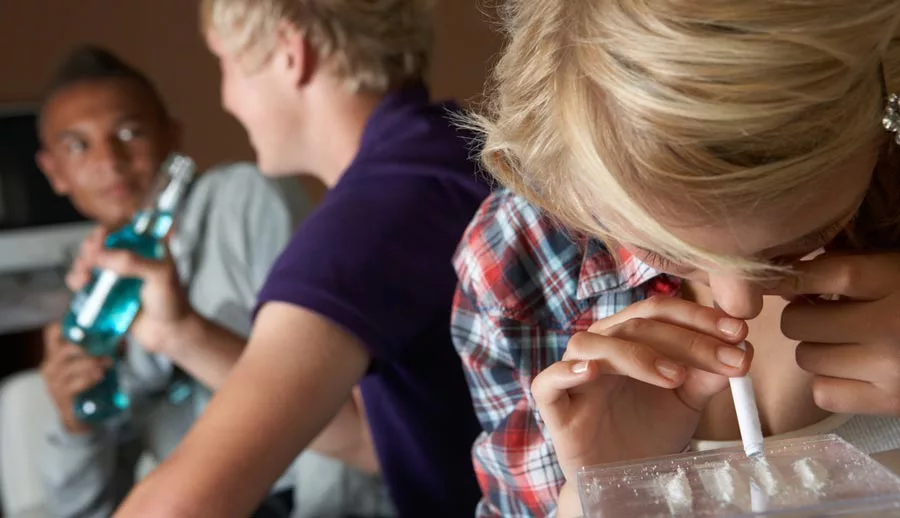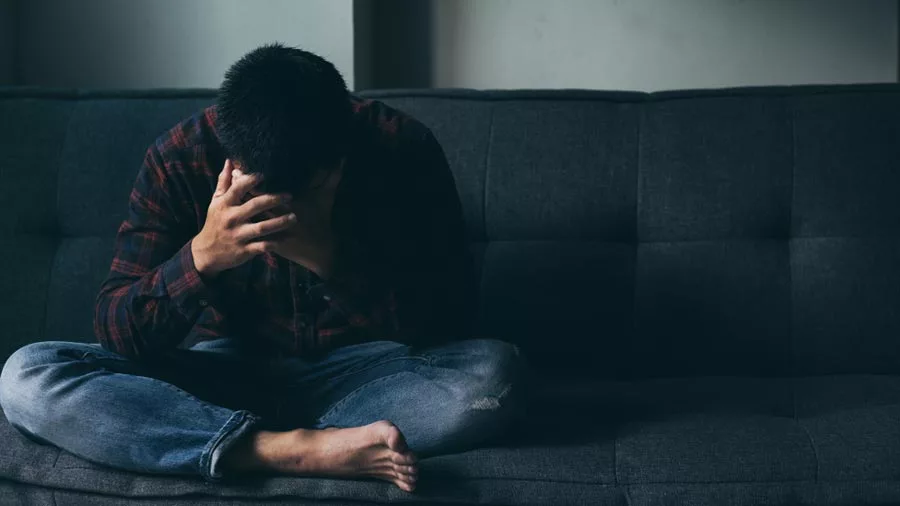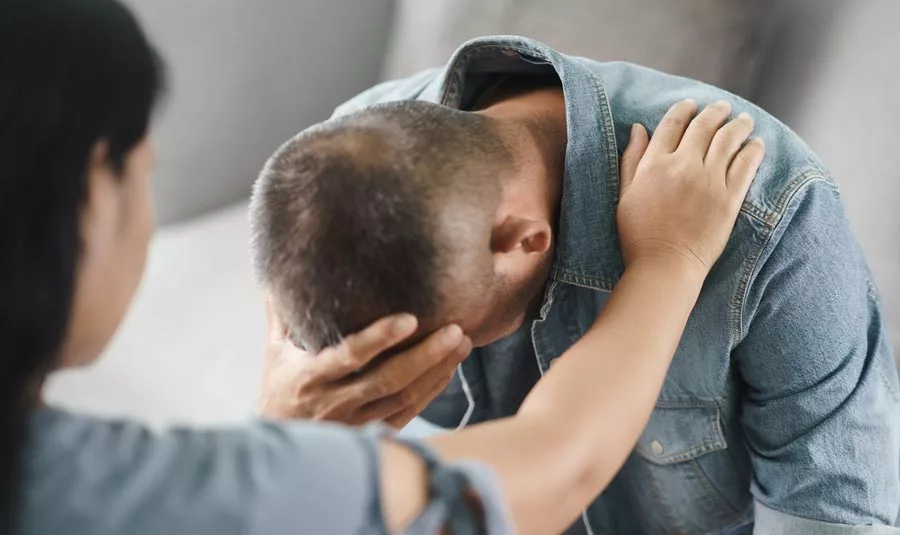Getting Help in Hawaii for Drugs and Drinking
Hawaii is a famous tourist destination due to its stunning natural beauty. Millions of tourists from all around the globe visit the islands annually. Despite being one of the best surfing locations in the United States, substance abuse in Hawaii still forms an issue.
Hawaii is a beautiful destination to visit and call home, but the state also has a significant population with substance abuse problems, as reported in addiction statistics. Luckily, Hawaii has a wide range of effective addiction treatment options.
Read on to learn more about substance abuse in Hawaii and the best treatment options available, at the Exclusive Hawaii Rehab!
Hawaii’s Drug Crisis


The Substance Abuse and Mental Health Services Administration (SAMHSA) annually conducts the National Survey on Drug Use and Health (NSDUH). This annual survey collects data on drug use and mental health disorders in people in the United States aged 12 and older. They further dissect the data by slicing it into categories like age and location.
Data from the 2019-2020 NSDUH survey shows that about 175,000 Hawaiians aged 12 or older use marijuana annually, while over 520,000 people older than 12 consumed alcohol in the same period.
Other commonly abused substances in Hawaii and neighboring islands include:
- Illicit drugs like cocaine
- Heroin
- Methamphetamine
- Tobacco
- Prescription pain relievers
About 151,000 Hawaiians were diagnosed with a substance use disorder in 2020.
The statistics from the drug abuse division might not seem frightening at first glance, but when you consider that they are rising yearly, you might think twice. Cocaine and heroin use also have devastating effects on their users’ life. The fact that such a sizable population engages in drug use is very alarming.
Experience True Healing
Our deeply-caring staff and the surrounding natural beauty offer an unparalleled healing experience.
Knowing the Signs of a Substance Use Disorder (SUD)
If you or a loved one regularly engages in compulsive, harmful substance use, you may worry that you or they have developed a substance use disorder (SUD).
About 21 million people in the United States suffer from a form of SUDs, making it a common and challenging health problem, and substance abuse in Hawaii is no different.
While common beliefs about addiction may lead you to believe that a person’s actions or lack of willpower are to blame, this is not the case. Addiction is a serious mental illness that affects an individual’s biology, which is out of their hands.
For the most part, addiction occurs because of the changes in the brain’s reward circuitry. Substance use disorders are usually overwhelming because of the intoxication high from drugs, resulting in an excessively high dopamine release.
Long-term drug use can change brain structure and function. This can lead to severe cravings, withdrawal signs, brain fog, and personality shifts.
Recognizing the warning signs of a substance abuse problem might be the first step in getting help.
The Different Forms of Warning Signs


The signs of a substance use disorder vary widely based on different factors like the specific drug used, the individual’s personality, and the severity of the addiction problem. Below are some of the general symptoms of substance use disorder.
Physical Signs of Addiction
The most common signs of SUD affecting physical health include:
- Rapid changes in body weight
- Bloodshot eyes with abnormally small or big pupils
- Changes in sleeping and feeding patterns
- Slurred speech
- Loss of coordination
- Tremors
- A decline in personal hygiene or grooming
- Flu-like symptoms
- Unusual body odor or breath
Psychological Signs of Alcohol and Drug Abuse
Here are some of the top physiological signs of addiction:
- Paranoia
- Anxiety
- Fear
- Personality changes
- Lack of motivation
- Fatigue that persists despite ample rest
- Periods of excessive vigor
- Irritability
- Agitation
- Rapid mood changes
Behavioral Signs of Substance Use Disorder
Behavioral signs of SUD include:
- Showing signs of becoming secretive or suspicious
- Exhibiting difficulties in interpersonal connections
- Using drugs in potentially unsafe contexts, such as engaging in intercourse without protection, driving under the influence, or using needles that are not sterile.
- Disregarding family and friends and neglecting duties at home, school, or work
- Suffering abrupt, unexpected financial difficulties, which may entail frequent requests for financial assistance or theft to prevent or alleviate withdrawal symptoms
- Developing a higher tolerance for the chemical, which could lead to increased use
- Lack of interest in once-enjoyed activities because of substance use
- Refusing to stop using despite the risks to one’s health
Dual Diagnosis Treatment for Substance Abuse in Hawaii


People who suffer from a dual diagnosis have both a substance use disease and a mental health disorder. They face additional challenges in the diagnostic process. This is because it can be tricky to differentiate between symptoms that appear to be unrelated, such as withdrawal and mental illness.
The National Survey on Drug Use and Health estimate that 9.5 million people in the U.S. experienced both mental illness and a substance use disorder in 2019.
Many individuals with a dual diagnosis usually have more severe, long-lasting, and treatment-resistant symptoms than those who only suffer from one disorder.
Experience True Healing
Our deeply-caring staff and the surrounding natural beauty offer an unparalleled healing experience.
Management and Treatment for Substance Use Disorders
Substance abuse can be treated successfully. Because of the high degree of individuality involved in the treatment process, the same person may require different treatments at various points in time.
Since SUD is a chronic disorder with the possibility of both remission and relapse, effective treatment frequently entails continued care. Patients with SUD frequently often suffer from other mental health issues, and it’s best to address all of them at once.
There are primarily three types of treatment:
- Detoxification
- Behavioral and cognitive treatments
- Medication-assisted treatment
It’s important to note that there are many varieties of treatment facilities, such as:
- Outpatient treatment
- Intensive outpatient treatment
- Inpatient treatment
- Sober living communities
Medically Supervised Detoxification
Detox eliminates all traces of the substance from the body after stopping use. Tapering off the substance or an alternative may decrease withdrawal effects, depending on the severity of the SUD.
This is the first step of substance abuse treatment. The detox process is available in both inpatient and outpatient settings.
Behavioral and Cognitive therapies


Substance use disorder and other mental health issues can be treated effectively with psychotherapy or talk therapy. Healthy coping skills are another thing that clients learn in therapy.
Providers of medical care may prescribe either medication or cognitive or behavioral therapy.
The following are some examples of effective treatments for individuals with SUDs:
- Cognitive behavioral therapy (CBT): CBT is an organized approach to psychotherapy that focuses on achieving specific outcomes. In cognitive behavioral therapy, a mental health practitioner facilitates thoughtful consideration of one’s thinking processes. You will learn that your thoughts determine your behavior. You can unlearn unhelpful ways of thinking and behave through CBT and replace them with more positive ones. CBT for SUD also focuses on change motivation, treatment knowledge, and relapse prevention.
- Dialectical Behavior Therapy (DBT): People who have trouble controlling their emotions can benefit significantly from DBT. DBT is helpful in treating and managing a wide range of mental health issues, including SUD.
- Assertive Community Treatment (ACT): The ACT model places mental health professionals in the community instead of a residential or inpatient facility. ACT caters to the person using it. The treatment plan you receive will be tailored to your individual preferences, requirements, and long-term objectives.
- Therapeutic Communities (TCs): These are residential programs designed to help people with substance use disorders change their attitudes and routines to manage better their symptoms of depression, anxiety, and other mental health issues.
- Contingency Management (CM): As an incentive-based approach, “contingency management” promotes positive actions by promising more if certain conditions are met. Typically, the treatment offers substance abusers a monetary incentive to abstain from drug usage. For instance, if you pass a drug test, you may be eligible for a reward.
Self-help groups, such as Narcotics Anonymous, can be essential to treatment for substance use disorders.
Self-help and social reinforcement are emphasized in these programs to encourage positive behavior change. These treatments are based on the premise that those struggling with SUD must accept that their illness is permanent. People who struggle with SUD can benefit from group treatment by learning to exercise restraint and self-control in therapeutic settings.
Medication


Your treatment approach may include the use of medication. Certain substance use disorders can be treated with medication by altering the patient’s brain chemistry. These can also mitigate the discomfort of withdrawal and recurring cravings.
Doctors may prescribe medication to help with the following:
- Opioid addiction: the Food and Drug Administration has approved methadone, buprenorphine, and naltrexone.
- Alcoholism: The FDA has approved three medications for alcoholism treatment: naltrexone, acamprosate, and disulfiram.
- Tobacco: Nicotine replacement therapies, such as patches, sprays, gums, and lozenges, can help smokers cut down or quit. Your doctor may also recommend varenicline or bupropion.
Experience True Healing
Our deeply-caring staff and the surrounding natural beauty offer an unparalleled healing experience.
Get Help for Substance Abuse in Hawaii Now
Substance abuse disorder is a complex mental health and neurological condition. Alcohol, stimulants, opioids, and other substances adversely affect the brain, affecting your ability to make sound judgments. Because of these changes, discontinuing drug use is challenging, even for those who genuinely desire to do so.
Seek medical attention immediately if you or a loved one are struggling with substance abuse. It is possible to get the care you need with the assistance of a knowledgeable professional.
Exclusive Hawaii Rehab is in a peaceful and welcoming environment, allowing you to recover fully from your addiction. Call our Intake Coordination team or reach us through our online contact form for professional medical advice about drug addiction treatment plans at Exclusive Hawaii Rehab now!